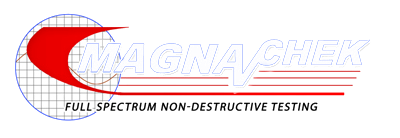With our high quality certification services we will accurately verify the performance of your machines at any given point.
We can also offer a recalibration if necessary. At Magna Chek we have the capabilities to perform these services on any NDT equipment, we are also ISO/IEC 17025:2017 accredited. Most parts manufacturers are required to have equipment calibrated and certified annually, but sometimes more often, depending on internal standards. If your equipment is capable of performing to a very low specification there is still plenty of room for error. In these cases, certifying the machine may be all that’s necessary. On the other hand if your equipment is just within tolerance, then it’s probably time to recalibrate! You could go out of tolerance tomorrow or the following week. Although calibration is more expensive and requires more downtime than certification, out-of-tolerance parts, customer complaints and warranty claims could end up being far more costly.
Are we drifting?
Interim check procedures also are advised for those who are working to maintain extremely tight tolerances. By running interim checks for equipment on a weekly, monthly or quarterly basis, for example, machine performance can be monitored and machine operators will be able to detect “drift” based on historical information. This will signal the need for calibration and limit the time and money spent on certification.
To perform laboratory calibration services on their equipment, most automotive companies require that service laboratories comply with ISO/IEC 17025:2017, a requirement that many tier suppliers also are adopting. The purpose of ISO/IEC 17025:2017 is to provide testing and calibration laboratories with a common traceable standard. ISO/IEC 17025:2017, which replaces ISO Guide 25, is required by QS-9000 of all calibration laboratories that certify a piece of equipment meets standards established by the National Institute of Standardization.
ISO/IEC 17025:2017 certicifaction should be the top criteria parts manufacturers look for when seeking calibration services, since it offers independent assurance of the laboratory’s inspection capabilities. The staff performing the calibration has been trained and there is evidence of that training. Further, the staff always completes the same certified procedures and techniques, and the software used for calibration has been certified, verified and tested to produce accurate results.


